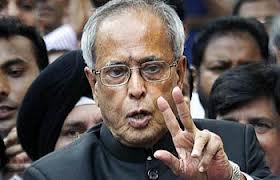Feb 29: The "Dadi of Shaheenbagh" on Friday said that Prime Minister Narendra Modi does not understand the pain of losing children, as speakers at an anti-CAA rally here called on protesters to maintain peace and not give in to any provocation.
Tushar Gandhi, the great-grandson of Mahatma Gandhi, said that the battle is not for a day or two, but the protesters will have to be prepared to continue it for years to come.
Asma Khatoon, who has earned fame as the "Dadi of Shaheenbagh" in Delhi, asked how can a person take care of the whole country when he cannot maintain his own family.
"He would have realised how it feels to lose a child if he had his own children," she told a gathering at the Park Circus Maidan, which is being termed as the Shaheenbagh of Kolkata with women holding a sit-in for the last 53 days to protest the Citizenship (Amendment) Act, proposed nationwide NRC, and the NPR.
The death toll Delhi's communal violence has gone up to 42.
She said it is not biryani that has attracted women to the protest at Shaheen bagh while holding that such vilification campaigns will have no effect on the agitation.
State BJP president Dilip Ghosh has claimed that "uneducated men and women" are protesting at Delhi's Shaheen Bagh and Kolkata's Park Circus as they get money and biryani purchased with foreign funds.
"Home Minister Amit Shah has called 20 protesters to meet him, but I want to tell him that we are one lakh and I want him to mention the place where he wants us to go for the meeting," she said.
Tushar Gandhi said, "People should stay united and not give in to any provocation," he said.
Gandhi said that the people of West Bengal are lucky to have Mamata Banerjee as their chief minister.
"They will try to break her also and it is necessary that you continue to give her support," he said.
Gandhi claimed that no one can harm a country where its mothers and sisters come out to save it.
He claimed that the CAA is not about Hindus or Muslims, but will really affect the poor people, who will be made to run around to get their papers instead of earning for their basic and daily needs.
"It's a dichotomous government that we have at the Centre. On the one hand, they want us to provide documents to prove our citizenship, while on the other they refuse to accept the papers that one produces before it for the purpose," he said.
He claimed that the government is forcing its people to resort to lies and declare that they are political refugees from countries like Bangladesh and Pakistan.
Gandhi claimed that time and again documents with the government like electoral rolls and land documents have been used to identify people of certain communities during riots.
"So it is dangerous to give too much information to the government," he said.
He called on the people to have faith in non-violence and asked them to maintain peace and harmony.
B R Ambedkar's great-grandson Rajratna Ambedkar claimed that it is the Adivasis who will also be affected by the CAA.
"I want to tell Modi and Shah that the country runs on the Constitution by Ambedkar and not M S Golwalkar (of RSS)," he said, adding that because of the rights conferred on people by the Constitution, those backward people who did not have the right to sit on a bullock cart are now flying jet planes.
He said that Modi and Shah committed an error by enacting the CAA as it has turned the people of the country into Indians only, instead of Hindus, Muslims, Christians or Sikhs.
"Every machinery of the country has been taken control of by the RSS. If one Modi or one Shah goes, they will bring in several more Modi or Shah," he said.






Comments
Add new comment